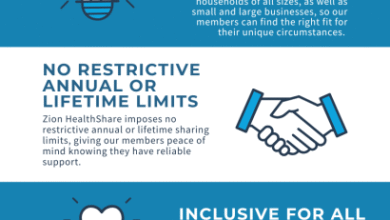Budget Friendly Health Tips You Need: Affordable Ways to Stay Healthy

According to a recent report from Monmouth University, nearly half of Americans struggle financially. This financial strain can have a significant impact on health. Skipping doctor visits to save money might seem like a good idea in the short term, but it can lead to delayed diagnoses and more expensive treatments later. Similarly, sacrificing healthy food for cheaper, processed options might save money at the grocery store, but can contribute to chronic health issues in the long run. Maintaining and improving your health doesn’t have to break the bank. This blog offers practical, budget friendly tips to help you stay healthy, and feel your best, even when finances are tight.
Healthy Eating on a Budget
According to Our World in Data, “food affordability is the ability to purchase enough nutritious and safe food, given the demands on household income outside of food. A healthy diet is considered unaffordable if it costs more than 52% of a household’s income” (2). This translates to about $1.90 a day for a basic diet low in nutrients, according to the international poverty line. While this amount may cover basic caloric needs, it falls short of providing essential nutrients (2). The same study found that a diet providing adequate nutrients and calories costs an average of $3.54 per day globally. In 2021, this study also found that 3.30 million people in the United States could not afford a healthy diet. While eating healthy does cost more, it’s crucial for maintaining proper health. To help, we’ve compiled some practical ways to increase nutrients while decreasing costs.
Tips to Decrease Costs
-
- Meal Planning: Take an hour each week to plan your meals and create a shopping list. This helps avoid impulse buying and reduces food waste. Planning meals lets you reuse ingredients across multiple meals, reducing the need to buy many ingredients and cutting down on waste. For more tips on how to meal plan on a budget visit: Unlockfood.ca
-
- Buy in Bulk: Purchase staple items like rice, beans, oats, and frozen vegetables in bulk. This reduces the cost per serving and ensures you always have essential ingredients on hand. If bulk buying is challenging, consider splitting bulk purchases with friends or family.
-
- Shop Seasonal and Local: Opt for seasonal produce and local markets to get fresher, cheaper options. Seasonal fruits and vegetables are often less expensive and more nutritious at farmers’ markets and discount grocery stores.
-
- Cook at Home: Preparing meals at home allows you to control ingredients and portion sizes, saving money compared to eating out. Batch cooking and freezing portions can save time, money, and help you keep healthy meals on hand.
-
- Use Leftovers: Repurpose leftovers into new meals to minimize waste and stretch your food further. For example, roasted vegetables can be added to salads or turned into soups, and leftover chicken can be used for sandwiches or stir-fries. Plan for leftovers by intentionally cooking extra portions. The USDA Food Safety and Inspection Service provides recommendations for proper food safety, especially when it comes to leftovers. Learn more about food safety
Fitness and Exercise Without the Cost
Staying active is essential for maintaining physical and mental health. While having a gym membership can be a helpful tool to stay fit if it’s within your budget, it might be a bill to reconsider for those looking to cut costs.
Tips to Stay on Budget
-
- Home Workouts: Use free workout videos online or apps that offer home exercise routines. Websites like YouTube have a vast array of fitness channels catering to different workout styles and fitness levels. For more ideas, check out the Cleveland Clinic’s ideas for Fitness on a Budget: How to Exercise on the Cheap.
-
- Outdoor Activities: Take advantage of parks and trails for walking, jogging, or biking. Nature offers a free and enjoyable environment for physical activity. Explore more in our post Zion HealthShare’s Guide to Outdoor Fitness and Activities.
-
- Community Resources: Look for free fitness classes or discounted memberships at community centers. Many communities offer free or low-cost classes for only a few dollars in activities like yoga, dance, and aerobics.
-
- DIY Equipment: Use household items like water bottles or stairs for resistance exercises. You don’t need expensive equipment to get a good workout. For example, use a chair for triceps dips or a backpack filled with books for added weight during exercises.
-
- Join a Group: Find a workout buddy or join a local sports team. Exercising with others can be motivating and fun, and many group activities are free or low-cost.
Affordable Preventive Care
Preventive care is essential for long-term health. Check what options your healthcare provider, insurance, or health share membership offers as part of preventive services; these services are often included at no extra charge. For Zion HealthShare members with the Direct membership or the preventive service add-on, Preventive Sharing provides access to several helpful services. Members are encouraged to prioritize their health by attending their annual provider visits and participating in applicable cancer screenings. Learn more about Preventive Sharing with Zion HealthShare here.
Consider These Budget-Friendly Options
-
- Regular Check-Ups: Find low-cost or free clinics for routine health check-ups and screenings. Many communities have clinics that offer services on a sliding scale based on income.
-
- Immunizations: Get immunizations at local health departments or during community outreach events.
-
- Screenings: Look for discounted or subsidized options for preventive screenings like mammograms or cholesterol tests. Many health organizations and non-profits offer free or low-cost screenings during certain times of the year.
-
- Health Education: Attend free workshops or seminars on preventive health care in your community. Many health organizations provide educational sessions on topics like nutrition, exercise, and disease prevention. Learn more about the importance of preventive care versus treatment in our blog post Prevention vs Treatment.
-
- Flu Clinics: Take advantage of free flu shot clinics offered by pharmacies, employers, or community centers. These clinics often provide vaccinations at no cost to help prevent the spread of influenza.
-
- Dental Care: Look for dental schools or clinics that offer services at reduced rates. Dental hygiene students often provide cleanings and basic care under the supervision of licensed professionals.
Budget-Friendly Mental Health and Stress Management
Mental health is just as important as physical health, and addressing it is crucial, especially when you’re on a tight budget. Managing stress and maintaining your mental health can be challenging in the best of times, but it doesn’t have to be expensive. Taking care of your mental health can improve your overall quality of life, help you cope with daily stresses, and build resilience. Fortunately, there are many effective and affordable ways to support your mental health without straining your finances.
Tips to Help
-
- Mindfulness Practices: Practice meditation or deep breathing exercises for stress relief. Visit our blog Thrive Not Survive: A Holistic Guide to Mental Health for tips on improving your mental health.
-
- Online Resources: Use free or low-cost mental health apps for guided relaxation and stress management. Websites like Mindfulness.org and apps like Insight Timer offer a variety of resources to support mental health.
-
- Community Support: Join local support groups or online forums for peer support and shared experiences. Connecting with others who understand your challenges can provide comfort and encouragement.
-
- Creative Outlets: Engage in creative hobbies like writing, painting, or gardening for therapeutic benefits without high costs. Creative activities can be a great way to express emotions and reduce stress.
-
- Nature Therapy: Spend time in nature to boost your mood and mental well-being. Activities like hiking, birdwatching, or simply sitting in a park can have a calming effect.
-
- Library Resources: Utilize your local library for free access to books, audiobooks, and workshops on mental health topics. Libraries often offer resources and events that support mental well-being.
*These tips can support mental health, but they are not a substitute for professional medical advice, diagnosis, or treatment. If you are experiencing severe mental health issues, please seek help from a healthcare professional.
Conclusion
Prioritizing your health shouldn’t be a financial burden; it’s an investment in your most valuable asset – yourself. Using just a few of these budget friendly tips, you’re not only investing in your health but also your future. Small changes today can lead to significant improvements over time in both your financial and physical health. You deserve to feel good and live a healthy life.
Learn More About Zion HealthShare

